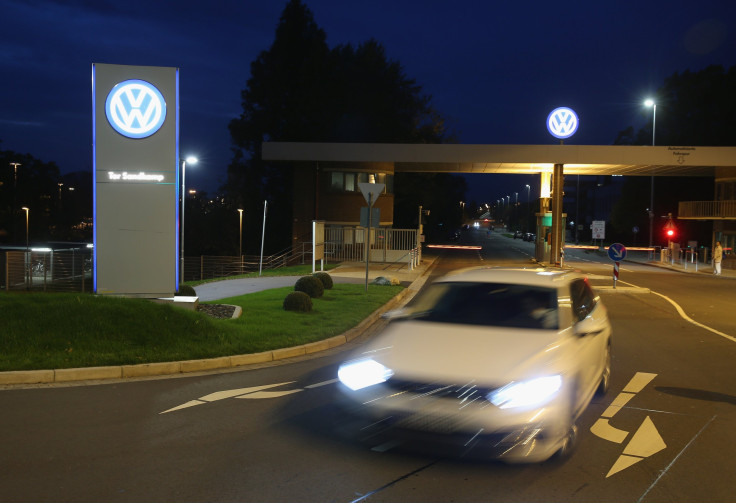Volkswagen Reports Q3 Loss Of $3.85B, Its First Quarterly Loss In Years Amid Emissions Scandal

UPDATE: 4:11 a.m. EDT -- Volkswagen AG reported a larger-than-expected loss of 3.48 billion euros ($3.85 billion) for the third quarter, the company announced, and said full-year profit would be significantly lower than last year. The loss is the company's first in more than 15 years, according to Bloomberg.
The after-tax loss for the quarter stands at 1.67 billion euros ($1.84 billion). In comparison, the company reported a profit of 3.23 billion euros ($3.57 billion) and after-tax profit of 2.97 billion euros ($3.28 billion) in the same quarter in 2014.
“The figures show the core strength of the Volkswagen Group on the one hand, while on the other the initial impact of the current situation is becoming clear,” CEO Matthias Mueller said, in the statement, adding: "We will do everything in our power to win back the trust we have lost.”
The company set aside 6.7 billion euros ($7.4 billion) in special costs in the third quarter amid the emissions scandal, higher than its initial estimate of 6.5 billion euros ($7.18 billion), the company announced.
Shares of the company were trading up about 1.16 percent on the Frankfurt Stock Exchange, losing ground after trading as high as 3.3 percent earlier in the day.
Original story:
Volkswagen AG CEO Matthias Mueller will be expecting a tough day Wednesday as he is set to face investors for the first time since the emissions scandal rocked the company, to report a loss during its third quarter -- another first in many years for the German automaker.
Analysts expect Europe’s largest automaker to post a loss of about 3.26 billion euros ($3.6 billion), its first deficit in over a decade, compared with a 3.23 billion euro ($3.57 billion) profit a year ago, a Bloomberg report said. However, the Wall Street Journal pegged the expected loss to be lower at around 1.6 billion euro ($1.77 billion).
Meanwhile, analysts expect Volkswagen’s revenue to rise 4 percent to 50.8 billion euros ($50.64 billion) in the third quarter, helped by strong sales in Europe and continued high demand for the Audi and Porsche brands, The Wall Street Journal said.
Following the emissions scandal, Volkswagen faces a mammoth recall of up to 11 million vehicles, a task which may cost more than the 6.5 billion euros ($7.18 billion) the company has set aside in the third quarter.
"This is an important week for VW to re-establish some of the bridges with the investment community," Jose Asumendi, a London-based analyst with JPMorgan Chase & Co., told Bloomberg.
In an attempt to quell investor doubts, Mueller said he will be fielding questions on the call with investors personally after the results, breaking the tradition of ex-CEO Martin Winterkorn, who delegated these questions to his financial chief.
Investors, meanwhile, will be looking to grill Mueller about progress of the investigation into the emissions scandal and economic fallout of the recall. While the company is working closely with European and American authorities, it is yet to issue details of how and when it intends to conduct the recall.
"We understand that VW is in a very tricky spot,” said Arndt Ellinghorst, a London-based analyst with Evercore ISI, told Bloomberg. “Nevertheless, the company should be far more proactive and release more factual details concerning its recalls."
Investors will also be looking to Mueller to salvage the carmaker's battered reputation, even as Volkswagen’s healthy balance sheet may soften the financial blowback from the scandal.
In wake of the scandal, Volkswagen has pledged to step up cost cutting. Analysts' estimates about how much the scandal could cost the company vary wildly -- from 28 billion euros ($30.94 billion) to 78 billion euros ($86.2 billion), according to Bloomberg.
Volkswagen’s market capitalization has eroded some 21 billion euros ($23.2 billion) in market since the scandal became public on Sept. 18, according to reports.
© Copyright IBTimes 2025. All rights reserved.





















